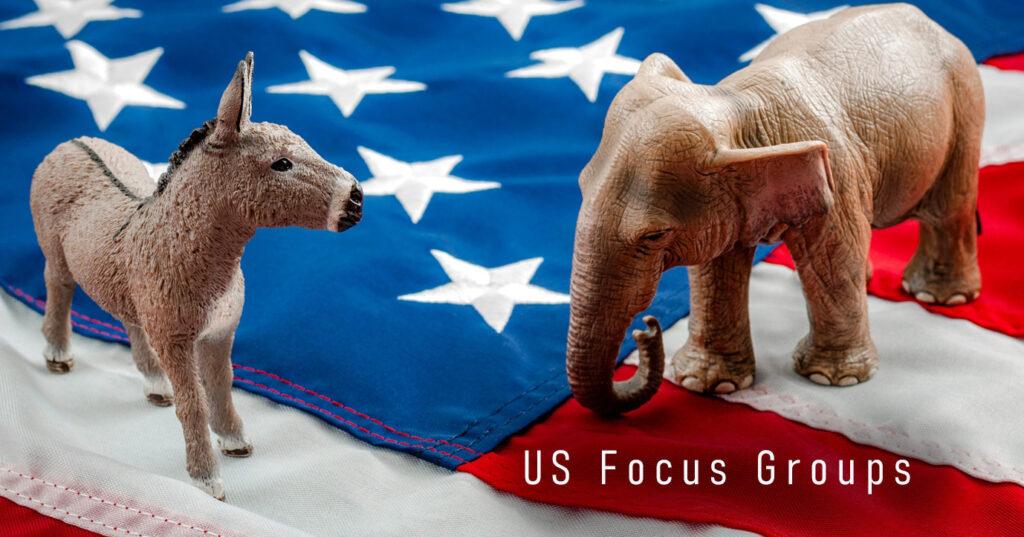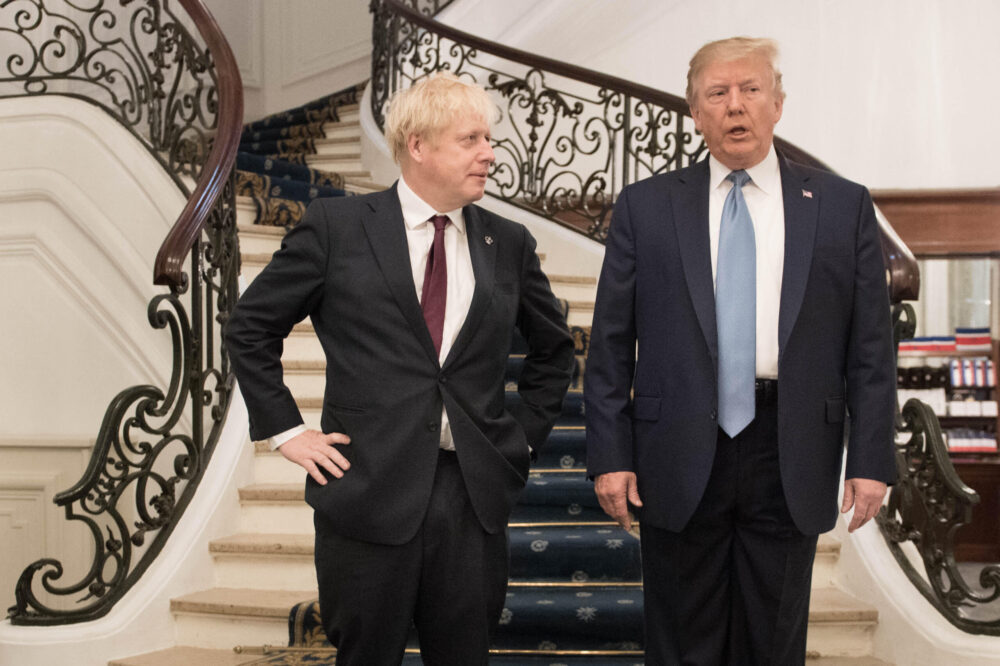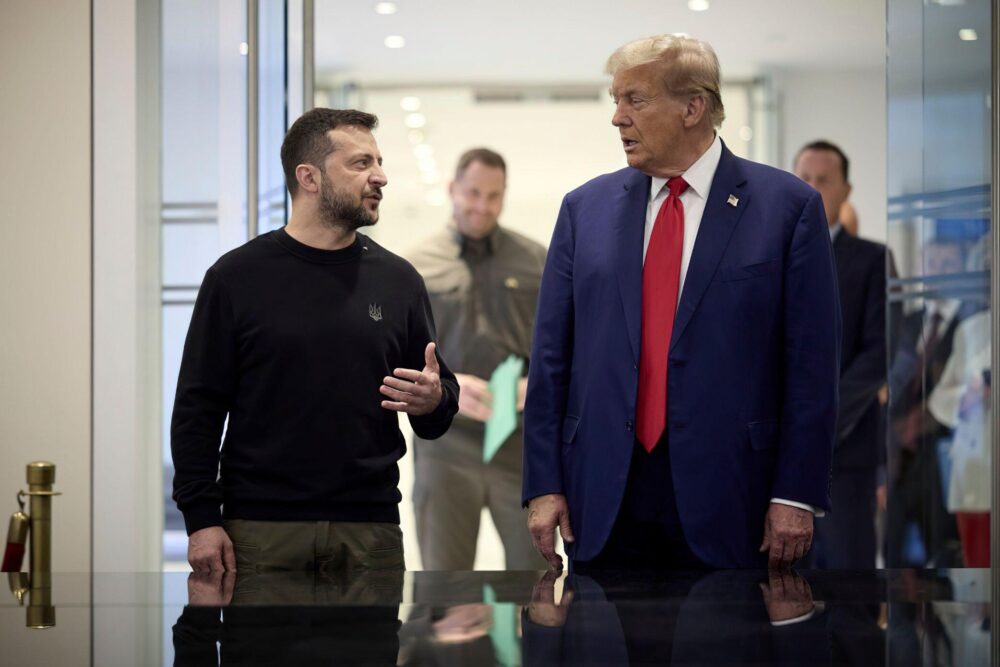
The latest edition of the Ashcroft In America podcast is here
In last week’s edition of the Ashcroft In America podcast our co-presenter Elise Jordan coined the phrase “kamikaze Donald Trump” to describe the recklessness that led had led him to tweet derogatory things about a former Miss Universe, at three a.m., five weeks before he hoped to be elected to the White House. As our focus groups confirmed, voters needed to see a more presidential version of Mr Trump if he was to seal the deal with waverers worried about his character and temperament.
So much for that. Last weekend’s leaked tapes were in a slightly different category, in that the kamikaze act itself took place more than a decade ago, but the effect was the same. By Monday, more than fifty senior Republicans, including Governors and Senators, dis-endorsed their party’s candidate; some even called on him to withdraw from the ticket (though it was far from clear how that could work, with ballot papers printed and early voting already underway in some states).
Even before this debacle over his attitude to women – and the previous one, come to think of it – analysts agreed that Trump’s chances depended on being able to convince female voters in places like suburban Philadelphia. In what my team claims to be a stoke of strategic and methodological genius, but which I know for a fact to be a fluke, our focus groups this week were with… women voters in suburban Philadelphia.
But if the media regarded the Trump tapes as a game changer, the women we spoke to – who took a dim view of both contenders – were not so sure: “Yes it was crude, but it was just guys talking”; “There’s more important things we need to talk about”; “Yes, his statement was wrong, it was horrible, but let’s get to the issues here. Let’s not keep re-running this thing over and over and over again.”
That was not to say these things didn’t matter – just that the latest episode was simply the latest chapter in an ongoing story, not a stunning new revelation. “I can’t vote for her, so I think, I’m going to vote for Donald Trump, but then every time he opens up his mouth I go, ‘good God!’”. His mouth could undermine more than his own dignity: “I’m terrified of how he just flies off the handle.” As president he is not just Donald Trump, “he is commander in chief!”
None of the Trump supporters we spoke to had been put off by this latest story. A few dismissed it as a non-story (“everybody talks like that when they’re with other people”). More often, they acknowledged his flaws (“there’s an art to communicating with people, and I don’t think he’s quite mastered that art”; “he’s different like a drunk uncle”), but returned to the point that the election was a choice between two imperfect alternatives: “I wish he was a different man, but he’s not. But I don’t want another career politician. I want change, and Trump is going to bring change;” “I think Trump’s an idiot, I don’t think he has the capability to be a good president at all. I just think he’s slightly less awful than Hillary.”
A politician instead of a madman
The last Republican presidential candidate to carry the Keystone State was George H. W. Bush, in 1988. But a central premise of Trump’s campaign is that he can compete in states the Democrats have held in recent elections, Pennsylvania foremost among them – indeed, he said in August that Hillary Clinton’s party could only win here “if they cheat”.
Though the polls currently give Hillary Clinton a double-digit lead in Pennsylvania, her campaign has continued to send high profile individuals like Michelle Obama to drum up support. As John Baer of the Philadelphia Daily News told us, the race here usually tightened towards the end, so they are taking nothing for granted: “I think they want to secure it. There is so much uncertainty throughout the electorate, they don’t want to take any chances here… It’s one of two things – absolute security for themselves, or forcing the Republicans to spend money here even though they’re not going to win.”
Another concern for Hillary is that “the enthusiasm gap is real. You can feel it at rallies, you can feel it talking to voters, there’s much more enthusiasm among Republican voters.” And as we have seen, things are unpredictable: “Every other day there is something that can move some numbers. You don’t know what’s going to happen in the last few weeks”.
Trump was never going to be the favourite in Pennsylvania, Baer thinks, but he was in with a shot. Could he have done anything differently to improve his chances? “Sure, he could have run like a politician instead of a madman. Had he crafted a campaign, had he listened to somebody who knows a thing or two about winning elections… If you take away all of the awful, horrible, no-good things that he’s said, you could make an attractive candidate out of Donald Trump, if he wasn’t Donald Trump.”
“The dark fever-swamps of the right”
One of the most unusual features of this campaign has been the prevalence of conspiracy theories, usually on the right, and often concerning Hillary Clinton. For Charlie Sykes, a prominent conservative talk radio host based in Milwaukee, this is the product of the “post-truth political environment” which has sprung from the breakdown of traditional media.
New outlets, especially on radio and online, amounted to “an alternative, other-side-of-the-story media. We have been so successful that we have created these alternative-reality silos where, if you’re a conservative – it’s true on the left as well – you can live in a world with your own facts, your own issues, and never encounter these fact-checks.”
As if this were not enough, the media then had Donald Trump to contend with, and was at a loss. “I think Donald Trump has broken the media, in a sense. The media does not know how to deal with a man who lies so frequently and so freely. They don’t know how to deal with an environment in which there is this other media that will then rationalise and defend and cover for all of his lies, and quite frankly they don’t know how to deal with an electorate that apparently is willing to accept those lies.”
As a conservative talk show host, Sykes finds this “really bothersome, because for years I’ve been arguing we don’t do this just for the ratings, we actually believe this, we care about this, these things are important to us. And then to watch one after another of some of the leading conservative media figures in America basically go, ‘yeah, we’re not really interested in principles, yes, we’ll peddle these conspiracy theories if it scores points for us.”
These theories had become one of the most worrying aspects of the campaign. “You have the dark fever-swamps of the right. I am a right-wing talk-show host but there are some serious fever swamps out there, and they traffic in the most bizarre conspiracy theories. And they’re difficult to refute because too many conservative commentators do not want to challenge them. They know that their audiences will believe them.” And the really disturbing thing was that “Donald Trump will see something, some bizarre, unfounded conspiracy theory. And you’re tempted to dismiss is as too far out of the mainstream, and the next thing, Donald Trump, who may be the next president of the United States, is tweeting out links to these kinds of things… How do you deal with somebody who actually doesn’t seem to have a filter, what is true what is false, what is responsible, what is irresponsible?”


